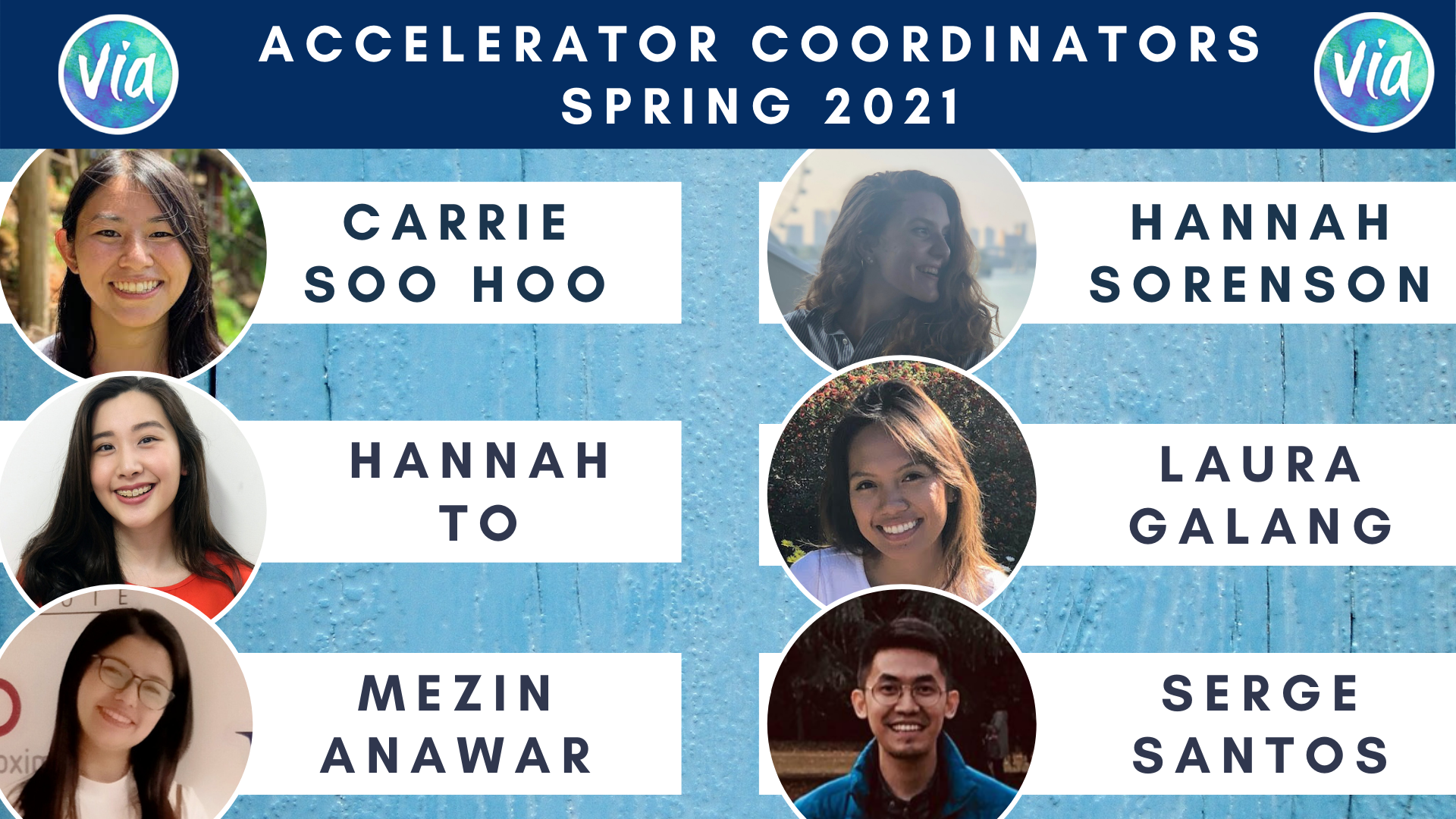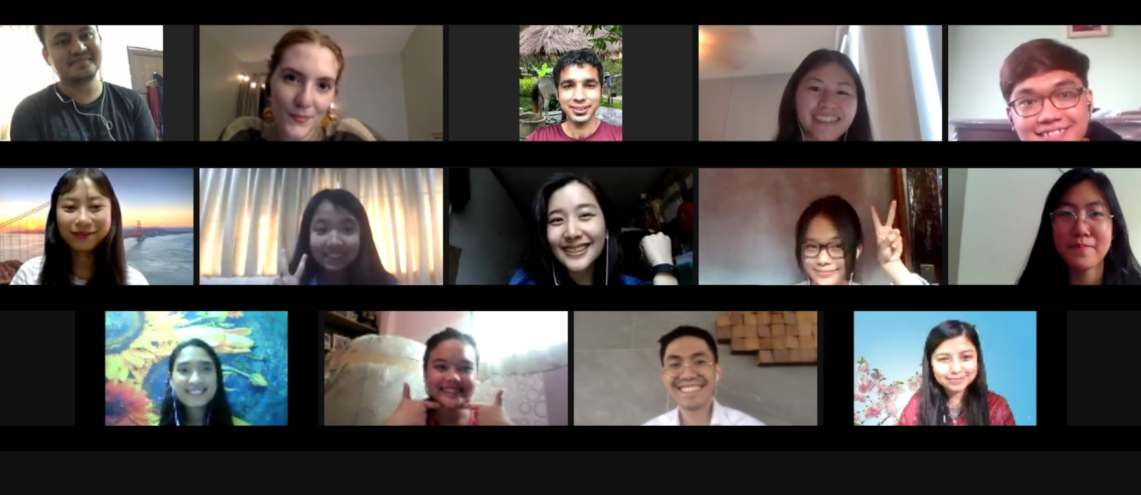The Social Impact Leadership Accelerator was launched in Spring 2020, and from the outset, the Program Coordinators have been integral to the success of the program. Program Coordinators volunteer hundreds of hours to work with teams across Asia to develop social impact projects like: media literacy trainings in Myanmar, social innovation programs in Thailand, career readiness programs in Japan, and so many others. Coordinators serve as a sounding board for teams’ new ideas, as project managers keeping teams on track, and most importantly, as community-builders; they connect their teams to other VIA alumni, share additional resources outside of the accelerator curriculum, and facilitate conversations with the larger VIA community.
Their work is far from straightforward – they are constantly adjusting their approach based on what their teams need. Our first cohort started their accelerator journey just as COVID-19 was emerging – forcing teams to rethink how they could still accomplish their project goals during a pandemic, and requiring Coordinators to consider ways for teams to share their progress virtually instead of at an in-person summit. With feedback from Coordinators and participants, we integrated more opportunities for cross-team engagement and alumni involvement, and we had made significant updates to our curriculum sequencing to better support participants in reaching their project goals. Our Coordinator team doubled in size, as we brought on three program alumni based in the Philippines and Myanmar to serve as Coordinators. We had a strong plan in place, and we were excited to get started.
Our current third cohort started their journey in late January 2021 right before the coup in Myanmar. Since all of our participants are from Myanmar originally or are based in Myanmar, how we move forward with the program has been uncertain at times. Our participants in Myanmar face intermittent power and internet outages, and more pressingly, have been under extreme emotional stress as day-by-day their communities become more deeply embroiled in protests, violence, and economic insecurity.
How do Coordinators respond in these situations? While we have our internal timelines for what participants should be doing at this point in the accelerator program under normal circumstances, we must recognize that sometimes we have to set aside our plans and make space for more important things – humanity, empathy, listening, and care. To move forward, VIA has to consider not just the external factors of communication, but also the participants’ time, well-being, and sense of motivation.
None of us really know the right thing to do or say when our colleagues and friends are grieving and the local situation is constantly changing, but the thoughtfulness of Coordinators has taught me so much in these last few weeks. These are some of the conversations they have been leading as we navigate this ambiguous path:
“Could we make our next call optional until we know more about the situation – maybe it will be a welcome distraction for participants who can join, and if participants can’t make it, they won’t feel stressed that they’re missing something.”
“Participants might be using their limited data on joining meetings, and that might be especially tough given bank closures and internet shutoffs – we need to ensure that this program isn’t causing an undue financial burden.”
“In the last cohort, we focused on finding synergies between the different teams’ projects, but this time, let’s make time to share how everyone is feeling both personally and about their projects. Their connection to their project might have changed since the coup.”
“Could our communications be putting our participants at risk? Is it safe to email our participants or message them? Should we encourage communication only through encrypted channels?”
It is a dream scenario to be in a leadership position where I work with a team that I trust without reservation. They are so open to sharing their ideas, ask the tough questions, and always put their participants first. They embody VIA’s community-centered “each one teach one” approach to program design and facilitation because they each have their own skills and perspectives that they actively bring to the table. Over the course of the last year, I have been able to take so many steps back from center stage as they take on more and more responsibility as our primary program facilitators.
While I am nominally their supervisor, I often feel that they are the ones in charge because their work is so integral to shaping the participant experience – I am just here to provide a space and resources for them to make the magic happen. I rely so heavily on their expertise because they bring a wealth of knowledge from their respective academic and professional fields. In addition, as VIA program alumni themselves, they have the personal perspectives to empathize with their participants in a way that I can’t.
My deepest appreciation goes to our Spring 2021 Coordinators: Carrie Soo Hoo, Hannah Sorenson, Hannah To, Laura Galang, Me Zin Anawar, and Serge Santos. Thank you for your warmth and energy, and for keeping us all motivated through challenging times and laughing in the happy times.


